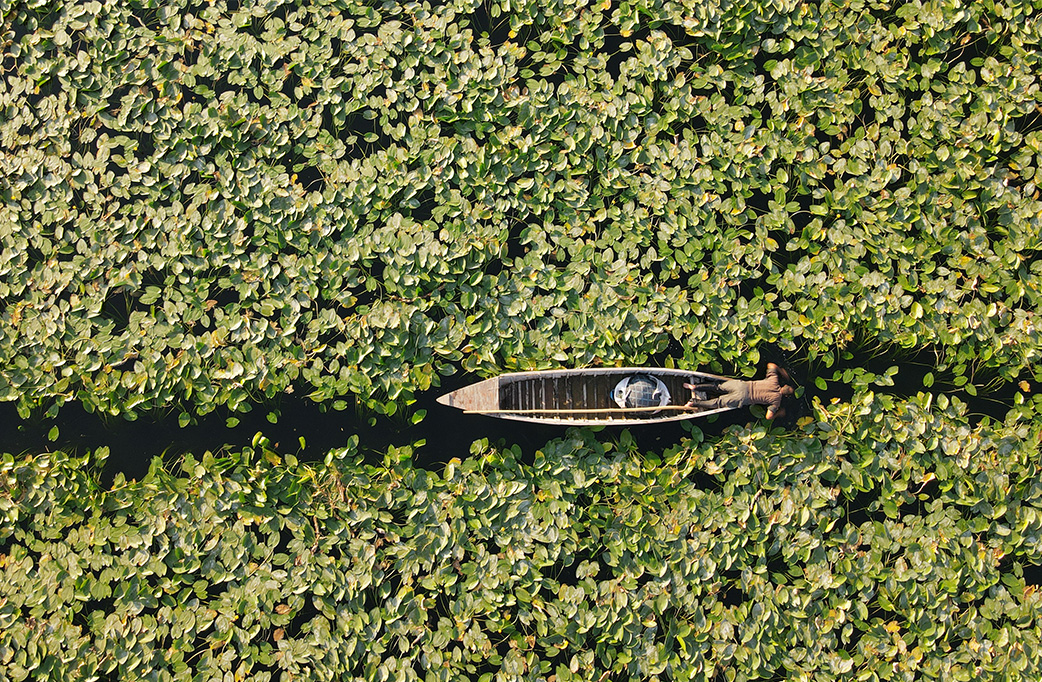Alarming meteorological imbalances topped with decades of poor water management are pushing Turkey to the brink of an avoidable hydrologic crisis. The data speaks volumes.
In 2022, Turkey experienced its warmest December in more than half a century, as the average temperature hit 8 degrees Celsius – 3.2 degrees above previous averages. The heatwave was made worse by record low rainfall. Over the last three months, rainfall totals were 40 percent lower than three decades ago, and 30 percent lower than 2021.
Climate change is not unique to Turkey. Europe spent the first months of winter with little snow as ski lifts stopped turning and holidays were canceled. Extreme temperatures have bankrupted farmers in Argentina, sparked wildfires in the United States, and fueled gender inequality worldwide.
But in Turkey’s case, a lack of preventative measures has contributed to abnormal conditions that are affecting millions across the country.
Turkey is a water-stressed country. According to the State Hydraulic Works, the annual amount of usable water per capita in Turkey fell from 1,652 cubic meters (m3) in 2000 to 1,346 m3 in 2020. The Falkenmark indicator, a widely used measure to gauge water scarcity, labels countries with less than 1,700 m3 per capita as “stressed.”
Water availability per person in Turkey is expected to drop even further this year, to 1,200 m3, which is one reason why the UN Intergovernmental Panel on Climate Change estimates that 60 percent of Turkey’s land area is prone to desertification.
Turkey’s largest cities – such as Izmir, Istanbul, and Ankara – have already been declared water scarce by the World Wildlife Fund. Two years ago, the reservoirs supplying water to Istanbul fell below 25 percent capacity, the lowest in 15 years. This led the Istanbul Water and Sewage Administration (ISKI) to call for voluntary water conservation. Levent Kurnaz, a climate expert at Bogazici University, says water conditions are so bad that Istanbul’s population might eventually need to be capped.
Mitigating climate change is no longer sufficient. We must also adapt. Unfortunately, Turkey’s leaders only recently began taking environmental concerns seriously. For instance, the country ratified the 2015 Paris climate agreement just two years ago and continuously underperforms in meeting climate targets. The 2023 Climate Change Performance Index, which measures climate progress in 63 countries in Europe and around the world, places Turkey at number 47 – below Egypt, India, and Belarus.
Simply put, the lack of preventative measures has contributed to Turkey’s drought conditions.
In the last 20 years, 60 percent of the country’s 320 lakes have shrunk or dried up completely. Runaway urbanization, commercial activities, and farming missteps have fueled the crisis.
Lake Marmara, in the country’s west, is one of the casualties. Between 2011 and 2021, the lake decreased 98 percent.Once a bird sanctuary that was home to 101 different species, Lake Marmara is now a barren wasteland, and government officials have done next to nothing to reverse the damage. In response, a group of local fishermen have sued the Ministry of Agriculture and Forestry in Turkey’s first ever climate change-related lawsuit.
Cem Altiparmak, a lawyer representing the group, says damming upstream and overuse by area farms caused the lake to vanish. But despite repeated pleas for intervention, local water officials “constantly turned a deaf ear to …solution proposals,” he said.
One of those solutions is agricultural reform. Currently, 73 percent of Turkey’s total water supply is used for irrigation. Farmers mainly use surface irrigation, which leads to runoff and depletes groundwater at a high rate. By converting to drip irrigation, farmers could cut water use in half, saving the country some 38 billion m3 annually.
Although Turkey has updated its farm regulations to meet European Union standards, most farmers continue to waste water. The country’s new water management law, which includes regulations on dams, ponds, and hydroelectric power plants, omits agricultural irrigation entirely.
This isn’t surprising. The government has repeatedly launched environmental projects only to abandon them by the next news cycle. Among the most egregious was its “1,071 ponds in 1,000 days” initiative, a 2016 plan to build irrigation basins across the country. The project died a quiet death after not being completed.
Another high-profile gaffe was President Recep Tayyip Erdogan’s tree planting project – an ambitious effort to plant 11 million saplings on National Forestation Day in November four years ago. Ninety percent of the saplings later died.
The governing Justice and Development Party isn’t fond of expert opinion and presses on with its ownagenda, regardless of the consequences. We saw this on devastating display most recently with the earthquakes that claimed tens of thousands of lives. Engineers believe that if building regulations were enforced, far fewer buildings would have fallen, and fewer people would have died.
Turkey’s water is also too valuable to gamble with. If a water crisis is to be averted, Turkey must shift from a construction-based model of development to a more sustainable solution. The government must also start listening to its own experts – and the reams of data they produce.
Alexandra de Cramer is a journalist based in Istanbul. She reported on the Arab Spring from Beirut as a Middle East correspondent for Milliyet newspaper. Her work ranges from current affairs to culture, and has been featured in Monocle, Courier Magazine, Maison Francaise, and Istanbul Art News.

